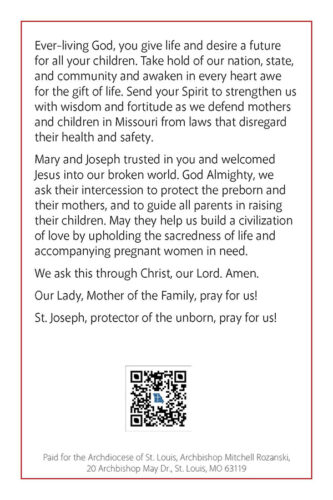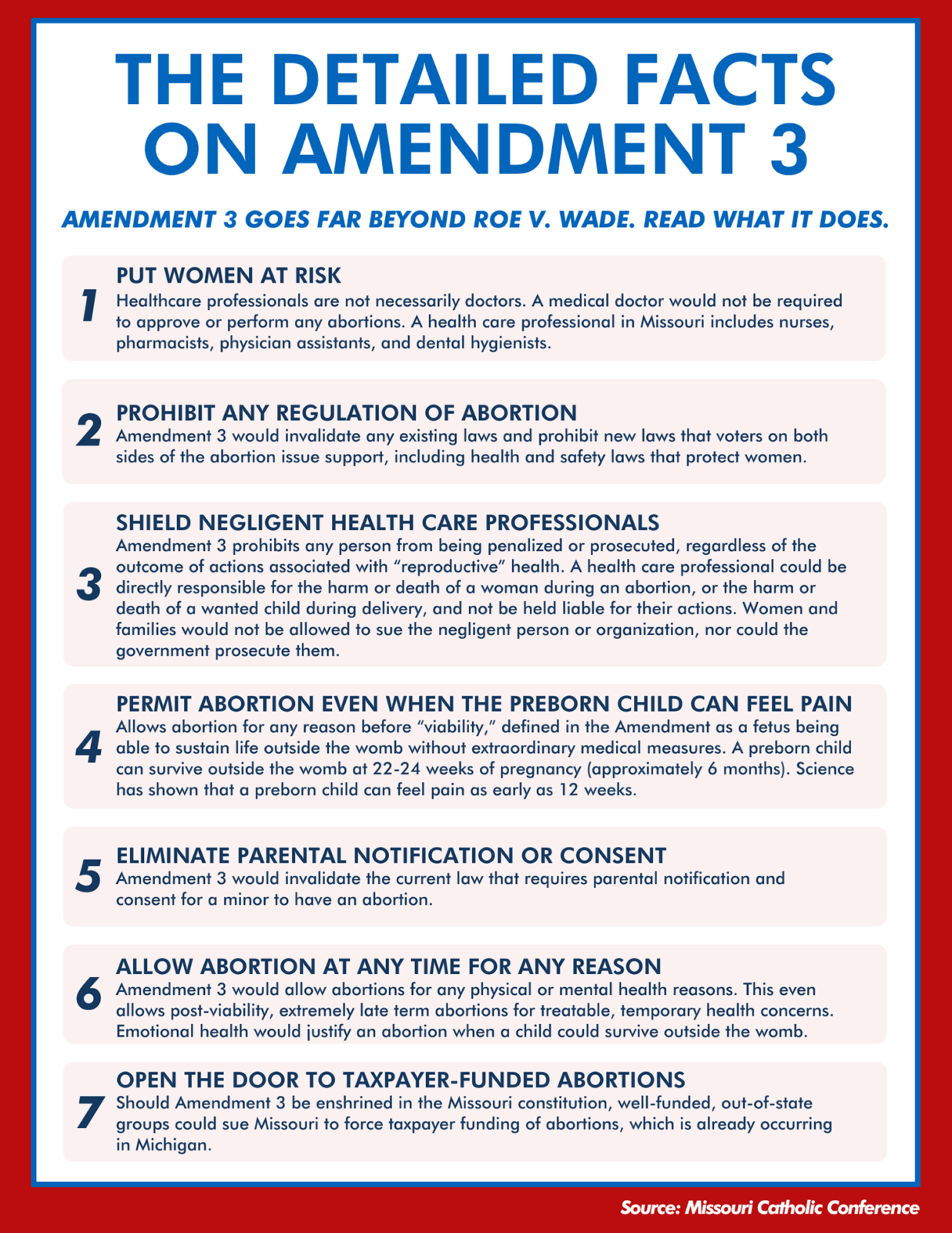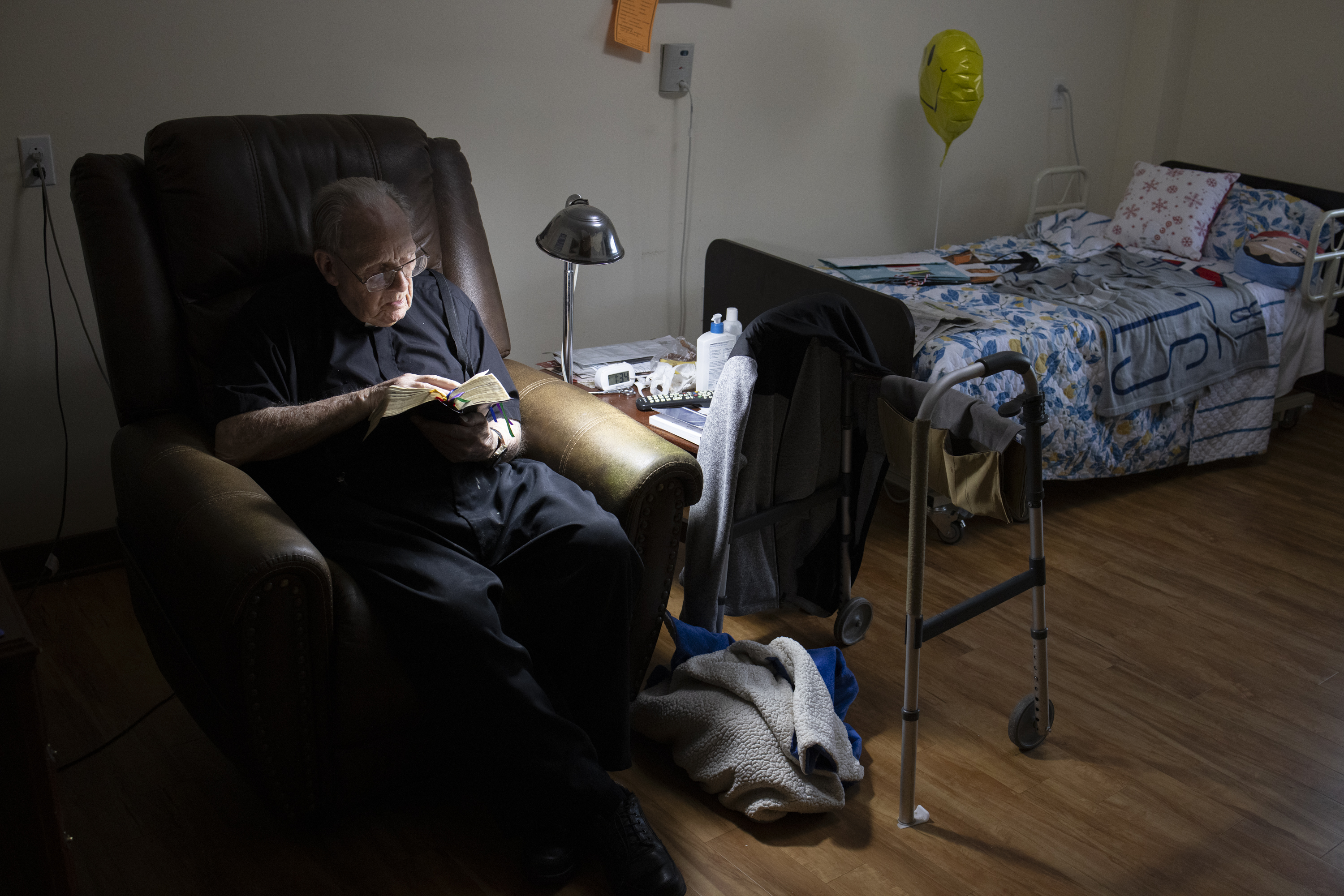Amendment 3 intertwines abortion with other forms of reproductive services

Proposed amendment’s language presents confusion, opponents say
Opponents of Amendment 3 assert that the proposed constitutional amendment would not only reverse the state’s near-total ban on abortion but also cause confusion in referring to other types of reproductive services within the ballot language.
Amendment 3 proposes to create a right to reproductive freedom, “which is the right to make and carry out decisions about all matters relating to reproductive health care, including but not limited to prenatal care, childbirth, postpartum care, birth control, abortion care, miscarriage care and respectful birthing conditions.” If passed, the measure would allow abortions until viability (typically around 22-24 weeks of pregnancy), with an exception for the “life and physical or mental health” of the mother.
The Missouri Catholic Conference, the public policy arm of the state’s bishops, has said that referring to “miscarriage care” promotes a myth that a “right to abortion” is necessary to preserve care for miscarriages and ectopic pregnancies.


Dr. Alexa Williams, a Catholic OB/GYN in the St. Louis area, said while there have been some events where the state’s abortion ban has been blamed for mismanaged patients with various pregnancy conditions, including situations where the mother’s life is at risk, health care institutions — including Catholic institutions — have successfully navigated these scenarios for years.
“Women under my care receive evidence-based medicine that upholds the dignity of all human life, whether it be routine well-woman care, management of a miscarriage, treatment for an ectopic pregnancy, low- or high-risk pregnancies, addressing hormonal abnormalities, counseling in natural family planning and so on,” said Williams, who practices medicine in line with Catholic ethical and religious directives.
“Unfortunately, though, human error will always exist,” she said. “Hospital systems and physicians will make mistakes, even in Catholic health care facilities. I think it is unfair to blame the current law for these mistakes.”
A right to abortion is not necessary to preserve care for miscarriages and ectopic pregnancies, Williams said. “This is where Amendment 3 is confusing because it essentially is promoting a right to all women’s health care, which initially sounds like a positive idea, until you notice that abortion care is intermingled into the mix with no restrictions, no safety standards, no parental consent for minors and no limitations on taxpayer funding,” she said.
Current medical terminology is a reason why miscarriage care has become intertwined with abortion, Williams added. The term for miscarriage often used in a medical setting is “spontaneous abortion,” which is defined as an early unintended pregnancy loss. This term is different from “elective abortion,” “induced abortion” and “medication abortion,” all of which involve medication or surgery as a direct means to remove the embryo or fetus and placenta from the uterus, she said.
Recognizing the challenges in interpreting medical terminology, the American College of Obstetricians and Gynecologists and other health-care organizations formalized a common set of definitions for women’s health care in obstetrics and gynecology. ReVITALize Gynecology Data Definitions no longer recommends the use of the term “spontaneous abortion” and instead suggests “miscarriage” or “intrauterine pregnancy loss.”
An ectopic pregnancy, where a pregnancy occurs outside of the endometrial cavity (typically within the fallopian tube), is considered nonviable and likely to present significant risks to the mother’s life, Williams said. Removal of the fallopian tube is a common treatment option, she said, adding that the indirect result of this surgery is a loss of a nonviable pregnancy, where typically there is no cardiac activity and low pregnancy hormone levels.
“Practicing as conservatively as possible in regard to the law, if ectopic pregnancy management would be considered an indirect ‘abortion,’ there is an exception for any procedure that would be a medical emergency, which has certainly been well established in the setting of ectopic pregnancies,” Williams said.
Currently, Missouri law prohibits abortions, except in cases of medical emergency. Legislators passed in 2019 a sweeping bill, known as the “Missouri Stands for the Unborn Act,” which included a “trigger ban” outlawing nearly all abortions in Missouri once Roe v. Wade was overturned.

Earlier in September, the Thomas More Society unsuccessfully argued before the Missouri Supreme Court that Amendment 3 includes a “super-right” to “reproductive freedom” and would repeal essentially all of Missouri’s laws and constitutional provisions regulating reproductive care and technologies, including existing laws on abortion, cloning, IVF for stem-cell research, gender transition surgery and genital mutilation, among other issues.
“Amendment 3 will have far-reaching implications on the state’s abortion laws and well beyond, repealing dozens of laws that protect the unborn, pregnant women, parents, and children, a reality that the initiative campaign intentionally hid from voters,” Thomas More Society senior counsel Mary Catherine Martin said.
If Amendment 3 passes, Williams said she is concerned for her physician colleagues and all women. “We as women and mothers are not meant to kill, especially not our own,” she said. “We must protect, love and help those who are most vulnerable — which are the women and babies in these uncertain and unexpected positions.
“There is no doubt about it that the devastation that induced abortion causes to all those involved is palpable and real,” she said. “We must start and encourage healing in this area.”
Survey on Amendment 3
Saint Louis University’s SLU/YouGov poll in August found 52% of likely Missouri voters support Amendment 3, which would legalize abortion rights in the state; 34% said they oppose that effort, with another 14% undecided.
The poll surveyed 900 likely Missouri voters about their opinions regarding the 2024 election, political issues facing the state and country, Missouri education issues and matters considered by the Missouri state government.
The poll indicated support for Amendment 3 had increased 8% since February. Should the amendment pass, Missouri’s current ban on nearly all abortions in the state would be reversed.
Seven states have already expanded abortion access via a ballot initiative following the overturning of the Roe v. Wade decision, and Missouri’s Amendment 3 is one of nine state-level abortion-related initiatives that will be on November ballots across the country.
Respect Life Conference
The Archdiocese of St. Louis will celebrate Respect Life Month with the 48th Annual Respect Life Conference, “Mercy Brings Life,” on Saturday, Oct. 5, at the Cardinal Rigali Center in Shrewsbury. The conference begins at 9 a.m. and includes Mass, presentations on timely topics from Catholic and pro-life leaders, lunch, a ministry partner fair, as well as an opportunity for networking, prayer and fellowship.
The conference will feature presentations on Missouri pro-life laws and advocacy (including Amendment 3), how God’s mercy builds a culture of life and best practices in having pro-life conversations. Speakers include Missouri Catholic Conference executive director Jamie Morris, Abortion Survivors Network founder Melissa Ohden, Catholic pro-life advocate Megan Mastro, and Reagan Barklage and Morgan Tiemeyer of Students for Life of America.
Cost is $20, which includes lunch and program materials. To register, visit stlreview.com/4d8xvJ7. For more information, contact prolife@archstl.org or (314) 792-7555.
Proposed amendment’s language presents confusion, opponents say
Subscribe to Read All St. Louis Review Stories
All readers receive 5 stories to read free per month. After that, readers will need to be logged in.
If you are currently receive the St. Louis Review at your home or office, please send your name and address (and subscriber id if you know it) to subscriptions@stlouisreview.com to get your login information.
If you are not currently a subscriber to the St. Louis Review, please contact subscriptions@stlouisreview.com for information on how to subscribe.







